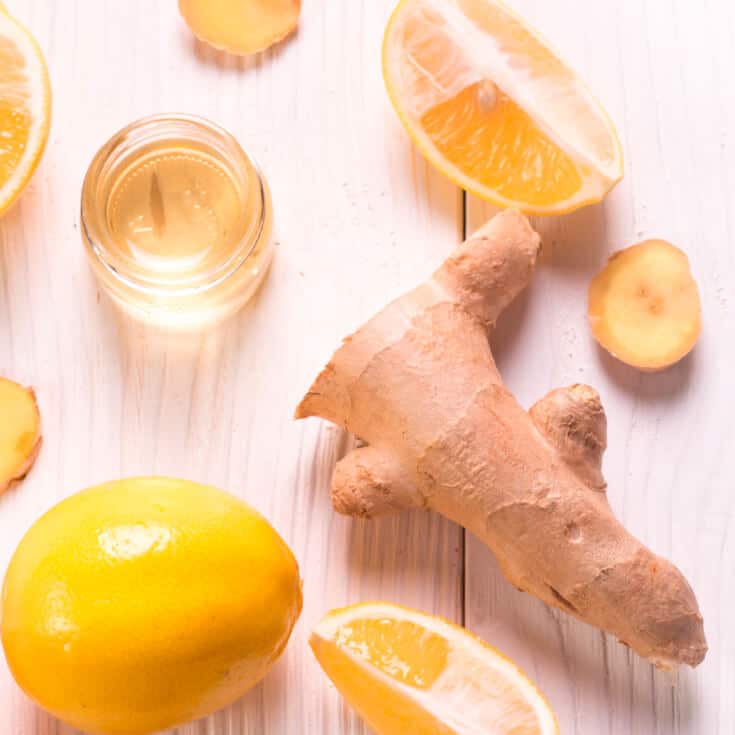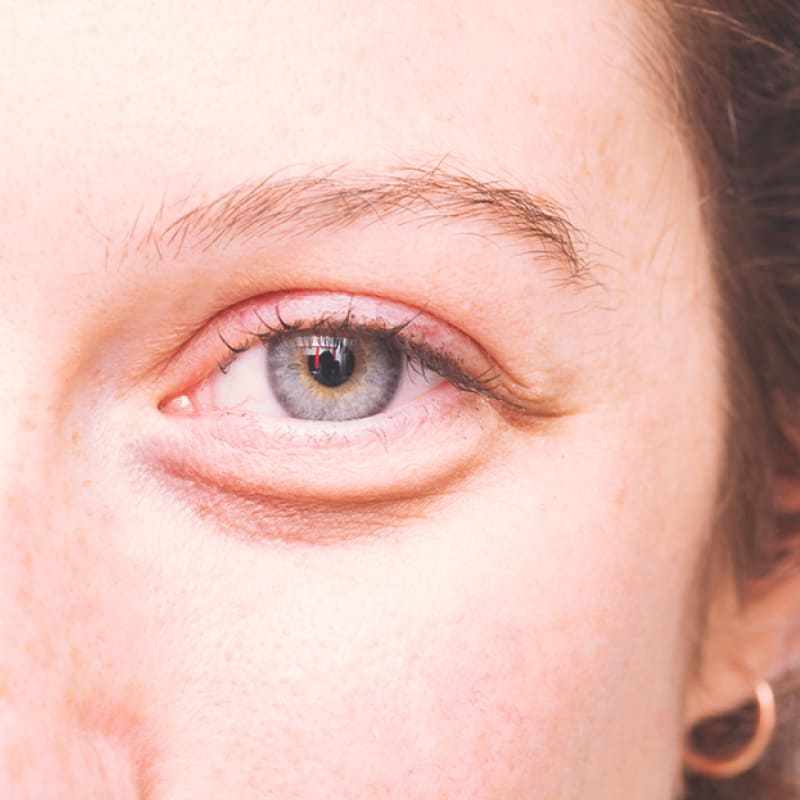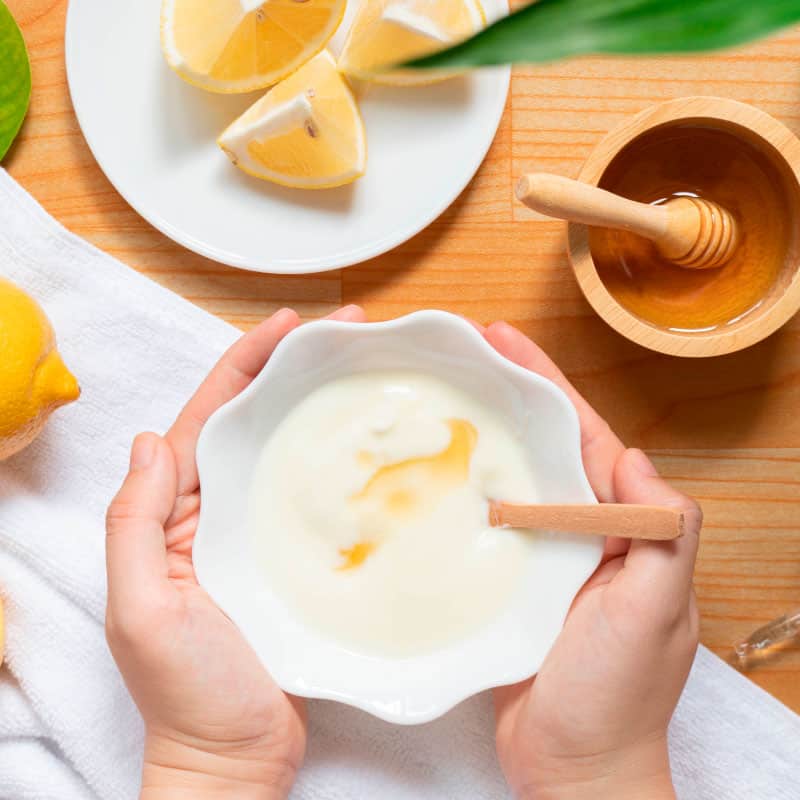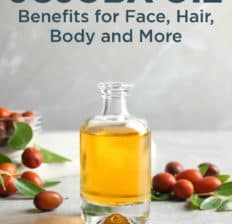This Dr. Axe content is medically reviewed or fact checked to ensure factually accurate information.
With strict editorial sourcing guidelines, we only link to academic research institutions, reputable media sites and, when research is available, medically peer-reviewed studies. Note that the numbers in parentheses (1, 2, etc.) are clickable links to these studies.
The information in our articles is NOT intended to replace a one-on-one relationship with a qualified health care professional and is not intended as medical advice.
This article is based on scientific evidence, written by experts and fact checked by our trained editorial staff. Note that the numbers in parentheses (1, 2, etc.) are clickable links to medically peer-reviewed studies.
Our team includes licensed nutritionists and dietitians, certified health education specialists, as well as certified strength and conditioning specialists, personal trainers and corrective exercise specialists. Our team aims to be not only thorough with its research, but also objective and unbiased.
The information in our articles is NOT intended to replace a one-on-one relationship with a qualified health care professional and is not intended as medical advice.
Jojoba Oil Benefits for Face, Hair, Body and More
January 23, 2023
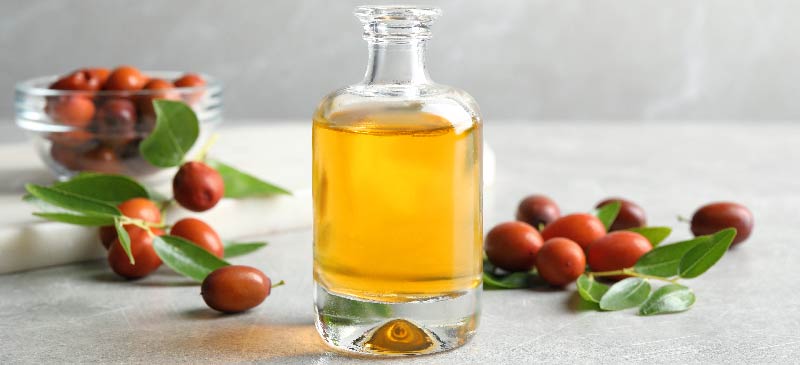
Jojoba oil (pronounced ho-ho-ba) is the liquid that comes from the seed of the Simmondsia chinensis (jojoba) plant, which is a shrub native to Southern Arizona, Southern California and Northwestern Mexico.
Although called an oil, it’s actually a liquid plant wax and has been used in folk medicine for a number of ailments. For instance, Native Americans use jojoba oil for treating sores and bruises.
What is organic jojoba oil best for? Today, it’s commonly used to treat acne, sunburn, psoriasis and chapped skin.
It’s also used by people who are balding since it encourages hair regrowth. Because it’s an emollient, it soothes the surface area and unclogs hair follicles.
Many people know jojoba oil to be a carrier oil for essential oil uses, such as making all-natural skin and hair products, but it’s actually an effective moisturizer and healer on its own too. You’ll be surprised to learn what using just a dab of jojoba oil can do!
What Is Jojoba Oil?
Mature jojoba plants are woody perennial bushes that don’t shed their leaves when the seasons change. When planted from seeds, jojoba plants can take up to three years to produce flowers, and the gender can only be determined by the flowers.
The female plants produce seeds from flowers, and the male plants pollinate. Jojoba seeds look a little like coffee beans, but they’re typically larger and the shape is not always uniform.
The chemical structure of organic jojoba oil is different from that of other vegetable oils because it’s a polyunsaturated wax. As a wax, jojoba oil for the face and body is especially useful because it protects the skin, providing hydration control, and soothes your hair.
At room temperature, jojoba oil is liquid because of its unsaturated fatty acids. Like some natural oils, jojoba oil does not break down or become rancid. It actually has a very long shelf life, which makes it good for cosmetic products and applications.
Jojoba oil contains beneficial ingredients, including vitamin E, vitamin B complex, silicon, chromium, copper and zinc. It has a very high percentage of iodine at 82 percent, which gives jojoba oil its power to heal.
It contains three fatty acids as well: erucic (13.6 percent), gadoleic (71.3 percent) and oleic (11.2 percent).
Related: What Is Double Cleansing and Does It Really Work?
Benefits
1. Moisturizes Skin
Is jojoba oil a good face moisturizer? That’s actually one of the top jojoba oil benefits, which is due to its ability to act just like our natural oils.
Our sebaceous glands are microscopic glands in our skin that secrete an oily or waxy matter called sebum. The texture and use of sebum are very similar to jojoba oil, so as we age our sebaceous glands produce less sebum, which is why we get dry skin and hair — it can even lead to dandruff or itchy scalp.
Jojoba plays the role of sebum and works to moisturize the skin and hair when the body stops doing it naturally. On the other hand, too much sebum, which happens during puberty or when hormone levels are high, can result in oily, acne-prone skin.
Jojoba oil actually removes sticky buildup or excess oil, too, keeping your oil levels balanced. That makes it a strong natural treatment for eczema as well as home remedy for acne, plus well-suited for other dry-skin conditions.
Jojoba oil is an emollient — meaning it moisturizes and prevents irritations or scaly and rough patches. Dryness is caused by a loss of water in the upper layer of the skin.
It works by forming an oily layer on the top of the skin that traps water.
Jojoba works on your face, neck, hands, feet and hair. You can use it anywhere on your body because it’s completely natural and contains no chemicals that lead to an allergic reaction.
According to research published in the International Journal of Molecular Sciences, jojoba has proven anti-inflammatory effects and potential uses in a variety of conditions, including skin infections, aging and wound healing. There’s also evidence displaying jojoba oil for acne, seborrheic dermatitis (dry, scaly skin) and eczema can be effective as well.
2. Removes Makeup Safely
It’s perfectly safe to use jojoba oil on your face. In fact, it’s good for your skin.
What’s not safe is using conventional products that contain a long list of chemicals that may cause irritation.
Instead of using makeup removers that contain chemicals, organic jojoba oil is a natural tool that removes the dirt, makeup and bacteria from your face as you use it. It’s even safe as a natural makeup remover, and it’s hypoallergenic.
3. Prevents Razor Burn
You don’t have to use shaving cream anymore — instead, organic jojoba oil’s waxy texture eliminates the threat of shaving incidents like cuts and razor burn. Plus, unlike some shaving creams that contain chemicals that clog your pores, it’s 100 percent natural and promotes healthy skin.
Try applying jojoba oil before you shave so it creates a smooth surface for shaving, and then apply it after you shave to moisturize and heal cuts quickly.
4. Promotes Skin Health
Jojoba oil is noncomedogenic, meaning it doesn’t clog pores. That makes it a great product for those who are acne-prone.
Although it’s a cold-pressed oil — and we usually think that oil that sits on our skin is what causes breakouts — jojoba works as a protectant and cleanser.
It’s rich in iodine, which fights harmful bacteria growth that leads to breakouts. The antioxidants present in organic jojoba oil soothe fine lines, wrinkles and naturally slow down other signs of aging.
It can also accelerate the wound-healing process, as indicated in a study done at the Department of Environment and Life Sciences in Italy. The results proved that jojoba oil speeds up wound closures and stimulates collagen synthesis.
The study also noted that jojoba oil had extremely low toxic effects when used on the skin.
A 2012 study conducted in Germany examined jojoba oil’s ability to reduce skin lesions and improve overall skin condition for 194 participants, who applied clay masks containing the oil to their faces two to three times per week. Overall, 54 percent of the participants reported that lesions were reduced significantly after six weeks of using jojoba oil.

5. Supports Hair Health
Jojoba oil for hair replenishes the moisture and improves the texture. It also improves split ends, treats dry scalp and gets rid of dandruff.
You can use jojoba oil to add shine and soften your hair — plus it eliminates frizz naturally. This is a much better option than using conditioners or hair products that are full of dangerous chemicals, which only make your hair more dry and limp.
To detangle your hair, add a few drops of jojoba oil to your brush or directly to your hair. Your brush will go through smoothly, eliminating the threat of broken pieces and split ends.
Jojoba oil is getting attention recently for treating alopecia, which is the loss of hair as a result of fungal infection or damage to the hair shaft and follicles. Common oils used for hair growth, such as lavender oil, rosemary oil, thyme oil and cedarwood, have proven to be effective.
Because essential oils can cause irritations for some people, reports suggest that mixing them with jojoba oil is helpful. Adding three to six drops of essential oil to one tablespoon of jojoba oil serves as a hair loss remedy because it treats dry hair follicles.
By restoring hydration, the scalp is in a healthier state, and hair is more likely to grow.
6. Has Vitamin E
Vitamin E plays the role of an antioxidant. It strengthens the capillary walls and improves moisture and elasticity, acting as a natural age-reversing nutrient within your body.
Studies show that vitamin E helps reduce inflammation both within your body and on your skin, helping maintain a healthy and youthful appearance. These antioxidant properties are also helpful when you’re exposed to cigarette smoke or ultraviolet rays from sunlight, helping protect against skin cancer.
When using jojoba oil containing vitamin E, it’s absorbed by the epidermis layer of the skin and can be used to treat sunburn, which is one of the leading causes of skin cancer. Because it speeds up cell regeneration, it can also be used to treat scars, acne and wrinkles.
Another vitamin E benefit is its ability to help thicken hair. This is due to its antioxidant and moisturizing properties.
7. Contains Vitamin B Complex
B vitamins act as antioxidants, and they help the body fight off free radicals and cell damage. They are great for your skin and maintaining hormone balance naturally.
Vitamin B5 (called pantothenic acid), for example, helps in treating skin reactions from radiation therapy and may speed up wound and cut healing. It’s also known to delay the appearance of premature aging, like wrinkles and dark spots.
Data gathered from several studies suggest that pantothenic acid induces an accelerating effect on the normal healing process due to certain mechanisms that it helps control. This vitamin B5 benefit, which you can get from using jojoba oil, keeps your skin free from infection and bacteria as it tries to heal.
8. Fights Fungi and Infections
Jojoba oil has antifungal and anti-inflammatory properties. It can treat toenail fungus and athlete’s foot and helps gets rid of warts.
A 2005 study found that jojoba oil was an effective anti-inflammatory agent that was able to reduce the symptoms of inflammation in rat paws and ears. The study also found that jojoba oil, or the liquid wax, was able to decrease the formation of wounds and speed up the healing process.
A 2013 review of literature indicates that the oil can be used for a variety of skin conditions, including infections and wound healing.
How to Use
If you’re wondering where to buy jojoba oil, you’ll be happy to find out that it’s available in most health food store, and recently it’s been in department stores and supermarkets as well.
When shopping for cold-pressed jojoba oil, stick with the organic brands — you want to make sure it’s 100 percent jojoba oil and there aren’t any additives that may be irritating.
There are so many organic jojoba oil uses, so don’t be afraid to experiment with your body products by adding a few drops of this beneficial ingredient. Here are some recommended uses:
- Face Moisturizer: Apply four to six drops of oil to your face in the morning and at night before bed. Can you leave jojoba oil on your face overnight? Absolutely. In fact, it will nourish your skin as you sleep.
- Hair Moisturizer: Add three to five drops to your conditioner, or apply one to two drops to damp hair after showering. If you have split or dead ends, massage jojoba oil into the ends after showering and before styling your hair.
- Reduce Wrinkles: Use one to three drops of jojoba, and apply it to wrinkled areas. Then rub it into your skin in a circular motion until it’s absorbed. You can do this twice daily.
- Makeup Removal: Add three to five drops of jojoba oil to a cotton ball or pad, and wipe off makeup.
- Lip Balm: Apply one to two drops of jojoba oil to your lips as an all-natural lip balm.
- Fight Infections: Add one to three drops of jojoba oil to the infected or irritated area twice daily.
- Sunburn Soother: Rub a quarter-size drop of jojoba oil into sunburn areas for relief.
- Mosquito Repellant: Research suggests that a combination of jojoba oil, coconut oil, rapeseed oil and vitamin E oil may help repel mosquitos for three to four hours.
- Acne Fighter: Using a clean cotton ball or clean fingers, apply a dime-size portion of jojoba oil to acne-prone areas in the morning and at night. You can also combine it with acne-fighting essential oils, like frankincense and lavender.
The first commercial cultivation of jojoba was in the Negev Desert and Dead Sea areas of Israel. Jojoba oil became very important to the cosmetic industry in the 1970s, when whaling was banned and sperm whale oil was no longer available.
Jojoba oil was deemed a suitable replacement for sperm wale oil, and it was used in cosmetic products throughout the U.S.
By 2000, the International Jojoba Export Council expected the global jojoba production to increase 15 percent over a five-year period, and with the popularity of DIY recipes and body care these days, jojoba oil continues to gain recognition.
It can be used as a natural and safe pesticide. Today, it’s used to control white flies on all crops and powdery mildew that builds up on grapes.
It forms a physical barrier on the surface of the crop, keeping the insect off of it. This is a great substitute for many common commercial pesticides because it’s non-toxic and won’t pose a risk to other organisms in the environment.
Recipes and Products
Jojoba oil is used as a carrier oil in many skin care products. Mix it with your favorite essential oils to create your own unique face wash, shampoo, conditioner, body lotion or massage oil.
Conventional lotions can be full of chemicals and harmful synthetic fragrances. Instead, try this Homemade Body Butter Lotion. This recipe is made with a powerful combination of antioxidant and moisturizing properties that leaves you looking fresh and youthful.
My Homemade Body Wash recipe is all-natural and chemical-free. It cleanses your skin and kills bacteria while providing nourishment and vitamins to keep it hydrated.
Add 1/4 cup of jojoba oil to my Homemade Vapor Rub, and you’ll be amazed at how it helps open up the respiratory system and improve the ease of breathing. It also smells super refreshing.
Youth-promoting serums can be expensive and contain harmful chemicals. Instead, try this Homemade Anti-Aging Serum recipe. It contains nutrients and antioxidants that will help you look vibrant and youthful while delivering vital nutrients and hydration.
Risks and Side Effects
Using jojoba oil is safe for most people when applied topically, even women who are pregnant or breastfeeding. Jojoba oil side effects may include a rash and allergic reactions.
Jojoba oil allergy symptoms may include hives and itching. However, jojoba is considered hypoallergenic, and adverse reactions are rare.
If you are concerned about an allergy, try a patch test before using it on your face or larger surfaces.
It’s not safe to take jojoba by mouth because it contains a chemical called erucic acid, which can cause heart damage and other serious adverse effects. Stick to using jojoba oil for external topical use and not for consumption.
Final Thoughts
- Jojoba oil is a liquid plant wax that’s used in a variety of face and body products.
- Because jojoba is an emollient, it works to protect the skin and prevent irritations. It also has nourishing and moisturizing properties. It’s rich in antioxidants, vitamin E and iodine — all nutrients that promote skin and hair health.
- There are several jojoba oil uses. It can be applied directly to the face, neck and other areas improve acne, fight inflammatory skin conditions and protect from infections. Jojoba oil for hair is also very popular because of its moisturizing and strengthening effects.
- Jojoba is considered safe for topical use. To test for an allergy, try a patch test before using the oil on larger surfaces or your face.







